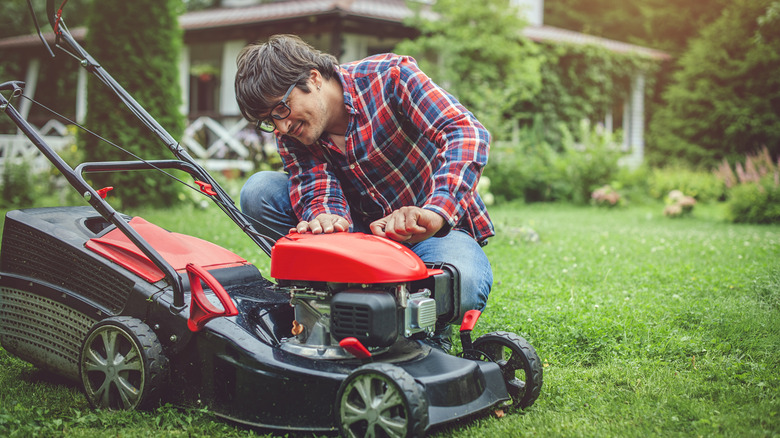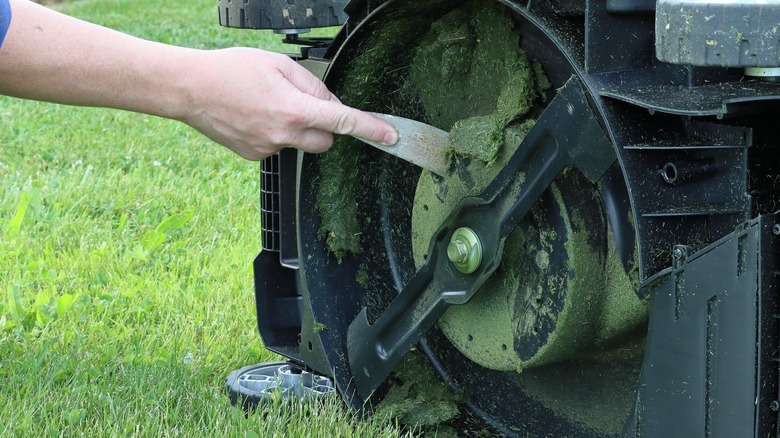The Household Staple You'll Want To Use To Clean Grubby Lawn Equipment
Maintaining the cleanliness of lawn equipment, such as mowers and weed whackers, is crucial for the equipment's longevity and safety. Over time, lawn equipment can accumulate debris and grass clippings. This can become a safety hazard, especially when debris build-up affects moving parts, creating potential fire risks or projectiles while in use. Regular cleaning can minimize these risks, ensuring a safer operation. Lawn equipment isn't cheap. To safeguard this investment, consistent upkeep is essential. Cleaning components like the mower deck can prevent rust and corrosion, preventing potentially expensive repairs. One easy, eco-friendly method to maintain lawn equipment involves using vinegar.
Adding vinegar to your cleaning routine for your lawn equipment is easy to incorporate into your equipment maintenance routine. One method is to dampen a cloth or brush with vinegar and use it to wipe down blades or any other parts that need to be cleaned. It effectively removes grass remnants, sap, and even stubborn dirt. Another technique is to create a cleaning solution by combining borax, baking soda, white distilled vinegar, dish soap, and water in a spray bottle. Apply this mixture onto the blades, ensuring a generous coat. Following this, scrub off any stubborn dirt or clippings on the blades. After cleaning, thoroughly rinse your equipment with the hose.
Why vinegar is a helpful tool
Vinegar, renowned for its cleaning capabilities, is particularly effective for lawn equipment due to its acidity. Acetic acid, a primary ingredient in vinegar, is recognized for its effectiveness in dissolving mineral deposits as well as removing grime, dirt, and grease. However, some precautions and considerations are essential when using vinegar for cleaning. First, always opt for white distilled vinegar. This cleaning agent is favored because it contains no coloring elements that might stain surfaces.
Additionally, with about 5% acidity, vinegar aligns with the acid levels found in many standard cleaning products. While vinegar is only a mild acid, wearing gloves and appropriate protective attire during cleaning is always a good practice to avoid skin irritation. Finally, post-cleaning, thoroughly rinse any vinegar residue from your equipment. After cleaning with vinegar, it's crucial to rinse the equipment with water and ensure it's thoroughly dried, as vinegar can cause metal to corrode or tarnish over prolonged exposure. Nevertheless, vinegar remains a favored cleaning solution due to its eco-friendly nature and cost-effectiveness, resonating with many homeowners seeking a sustainable lawn equipment maintenance approach.


